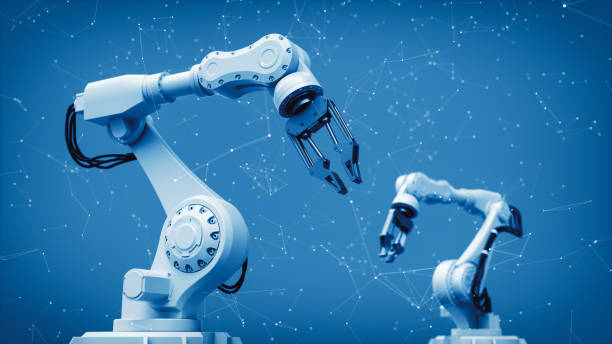Table of Contents
Robotics, the science and technology of designing, constructing, and operating robots, has witnessed remarkable advancements in recent decades. These sophisticated machines are increasingly penetrating various industries and aspects of our daily lives, revolutionizing the way we work, live, and interact. This article explores the significant impact of robotics on industry and everyday life.

Industrial Robotics: Transforming Manufacturing
Industrial robots have been a cornerstone of manufacturing for decades, automating tasks that were once performed by human workers. They have significantly improved efficiency, productivity, and quality control across a wide range of industries, including automotive, electronics, and pharmaceuticals.
Increased Efficiency: Industrial robots can work tirelessly around the clock, reducing downtime and increasing production rates. They are also capable of performing tasks with precision and accuracy that is often unattainable by human workers.
Improved Quality: Robots can consistently maintain high standards of quality, reducing defects and waste. They are particularly well-suited for tasks that require repetitive movements or precise assembly.
Enhanced Safety: By automating hazardous tasks, industrial robots can reduce the risk of workplace accidents and injuries.

Robotics in Everyday Life
Beyond industrial applications, robotics is making significant strides in our everyday lives. From healthcare to household chores, robots are becoming increasingly integrated into our daily routines.
Healthcare Robotics: Robots are being used in healthcare to assist with surgeries, rehabilitation, and patient care. Surgical robots, for example, can perform delicate procedures with greater precision and accuracy than traditional methods.
Service Robotics: Service robots are designed to assist humans in various tasks, such as cleaning, delivery, and customer service. These robots are becoming increasingly common in hotels, restaurants, and retail stores.
Household Robotics: Consumer robots, such as vacuum cleaners and lawn mowers, are becoming more affordable and accessible. These devices can automate household chores, freeing up time for other activities.
Entertainment Robotics: Robots are also being used for entertainment purposes, including toys, companions, and even performance art.
Ethical Considerations and Challenges
While the potential benefits of robotics are significant, there are also ethical considerations and challenges to address.
Job Displacement: The increasing use of robots in the workplace raises concerns about job displacement. As robots become more capable, there is a risk that certain jobs may become obsolete.
Ethical Implications: The development and deployment of robots raise ethical questions related to autonomy, accountability, and the potential for misuse.
Technological Limitations: Despite significant advancements, robots still have limitations in terms of perception, cognition, and adaptability. They may struggle to perform tasks in complex or unpredictable environments.

The Future of Robotics
The future of robotics is bright, with ongoing advancements in artificial intelligence, machine learning, and materials science. As robots become more sophisticated and affordable, we can expect to see them play an even greater role in our lives.
Conclusion
In conclusion, robotics is transforming industries and reshaping our everyday lives. While there are challenges to address, the potential benefits of robotics are significant. By carefully considering the ethical implications and addressing technological limitations, we can harness the power of robotics to create a better future for all.